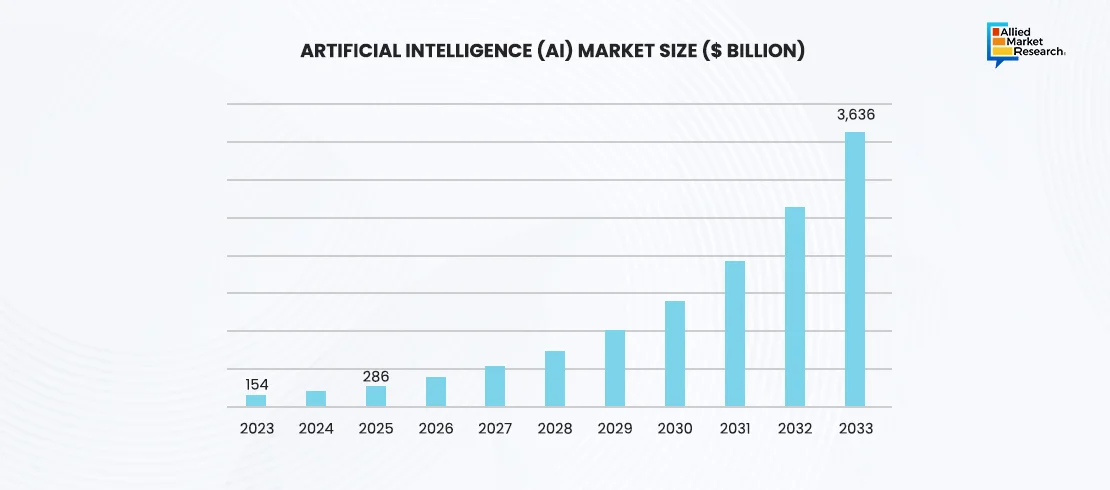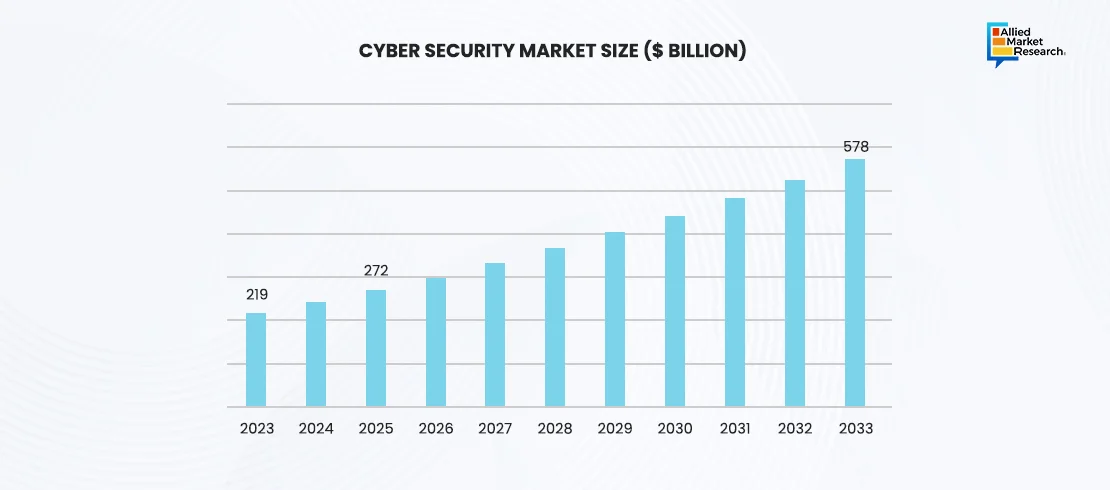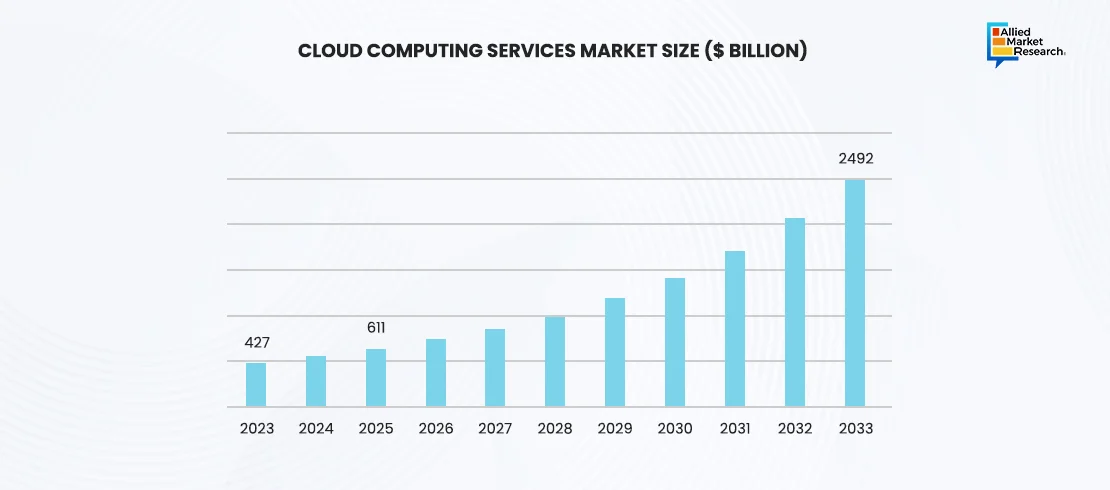Table Of Contents
- Increased adoption of innovations and connectivity technologies creating favorable conditions for the sector
- Cybersecurity and cloud-first approaches leading the way for industry giants
- Technological advancements in edge and quantum computing opening new avenues for growth
- M&A deals and innovative product launches strengthening the foothold of the domain
- Winding up

Onkar Sumant

Koyel Ghosh
ICT Industry Outlook 2025: AMR’s Analysis of the Innovations, Trends, and Strategies Influencing the Sector’s Growth

The information and communications technology (ICT) domain is one of the most rapidly expanding sectors in the global economy. The increasing penetration of Internet services across the globe and the growing dependence on networking-based services have broadened the scope of the landscape significantly. Additionally, increasing investments in R&D for emerging technologies by private companies, governments, universities, think tanks, and civil societies have boosted the domain’s growth and success. Along with this, certain trends and market strategies adopted by major stakeholders in the sector are expected to play a major role in its expansion in 2025. Technological advancements, M&A deals, and the launch of innovative products are also likely to increase the revenue share of the landscape in the coming year. This newsletter throws light on all such factors that are likely to impact the ICT domain positively in 2025.
Increased adoption of innovations and connectivity technologies creating favorable conditions for the sector
While the landscape of ICT has been continuously rising for the past few decades, the emergence of AI and ML has intensified the pace of its growth drastically. Almost all sectors of the global economy, including BFSI, healthcare, consumer goods, electronics, automobile manufacturing, food and beverages, etc., have been impacted by the advent of these innovations. Artificial Intelligence is widely being used in these end-use industries to improve productivity and output quality with the same costs and time. On the other hand, machine learning has helped IT companies develop software application programs that aid in predictive analysis and forecasting. Furthermore, these technologies have also enabled businesses to create robust risk assessment frameworks and fraud detection mechanisms, thus enhancing their brand value among their customers.
On the other hand, many developed and developing countries have launched 5G services in the last few years to create a strong platform for futuristic technologies such as augmented reality, edge computing, IoT, etc. Another motive behind the launch of 5G technology is to connect the remotest parts of the world, thus assisting marginalized and vulnerable sections to become a part of the mainstream economy. For example, many e-commerce platforms, using these advanced Internet services, have been able to expand their customer base globally. From the consumers’ perspective, the availability of a wide range of products and services has helped them address their demands and needs perfectly. Thus, modern connectivity solutions such as 5G are expected to boost the volume of global trade and contribute to the idea of globalization in 2025.

Cybersecurity and cloud-first approaches leading the way for industry giants
While the growing digitalization of different services has provided several positive outcomes, the rise in the problem of cyber threats and malware attacks has restricted the expansion of the ICT sector. In the landscape of BFSI, for instance, people are becoming more hesitant to send money through online channels due to the fear of hacking and misappropriation. To address these problems, banks and financial institutions are deploying innovative solutions such as blockchain to improve the trust and credibility of their operations. At the same time, governments worldwide have introduced laws requiring companies to set up strong cybersecurity systems to protect depositors' money and prevent financial fraud. In the coming year, the awareness regarding the importance of cybersecurity measures is predicted to grow in other end-use industries too.
During the COVID-19 pandemic, almost all major countries sanctioned lockdowns, social distancing norms, and travel restrictions to curb the spread of the virus and bring down the rate of infection. As a result of these administrative measures, IT companies across the globe had to shift to work-from-home models which allowed employees to work remotely from their places of residence. To ensure smooth communication among the workforce, these businesses started adopting a cloud-first approach wherein all their operations and critical data were shifted over cloud. In the last few years, this hybrid model has benefited these enterprises significantly as it has enabled them to bring down their working costs, thus improving their profit margin in the long run. Hence, many other such companies are expected to adopt this strategy of investing in cloud-based architecture in 2025.

Technological advancements in edge and quantum computing opening new avenues for growth
One of the most exciting developments in the ICT sector has been the emergence of edge and quantum computing. Edge computing is a modern IT architecture wherein the data is processed at the periphery of the network to maintain closer proximity to the data source. The main purpose of developing such a framework is to improve response times and bandwidth availability, thus enhancing the capability of the network to perform high-end tasks. The biggest advantage of edge computing is that it helps reduce latency drastically, enabling the application to process data and deliver the necessary output quickly. As a result of these benefits, edge computing is expected to become the main component of advanced technologies such as AR/VR and the Internet of Things in the coming year.
On the other hand, quantum computing is a multidisciplinary approach wherein physics, mathematics, computer engineering, and quantum mechanisms are applied to solve complex problems. This new-age computing method implements principles of superposition and quantum interference to decipher certain unique calculations at extremely high speeds. Studies done in the landscape of ICT have shown that the computational rate of these machines is greater than any supercomputer ever designed across the world. As per industry experts, the invention of quantum computing is expected to open several new possibilities and investment opportunities in the fields of drug discovery, space exploration, artificial intelligence, etc., in 2025.

M&A deals and innovative product launches strengthening the foothold of the domain
Apart from these trends, strategies, and technological advancements, the ICT sector is expected to experience huge growth in 2025 due to the strategic alliances established by leading players in the industry. For example, Verizon Communications, the world’s second-largest telecommunication company, has announced its plans to acquire Frontier Communications, another player in the industry, for $20 billion. As per the press release issued by Verizon, the company aims to close the deal by late 2025. Similarly, Swisscom, a leading telecom business based in Switzerland, reported the acquisition of Vodafone Italia, an Italian company, for $22.5 billion. All the formalities surrounding the deal are expected to be completed in the opening months of 2025. As per many industry experts, this acquisition is one of the biggest M&A deals in 2024.
Along with this, certain multinational corporations are planning to launch innovative products and services to expand their footprint in the domain. Many companies have taken part in the Consumer Electronics Show (CES) 2025 to showcase their ingenious AI-powered gadgets such as smartwatches, glasses, earbuds, etc. The CES is one of the premier events in the ICT sector and offers participants to put forth their ideas among different stakeholders, including regular customers, experts, and investors. Similarly, several enterprises are engaged in R&D activities related to designing AI-based home appliances to align their business operations with the transforming industry scenario.
Winding up
The ICT domain is likely to witness growth in the coming year owing to the increased adoption of advanced technologies such as AI, machine learning, edge computing, and quantum computing. Moreover, the rising emphasis on cybersecurity and cloud-based services is predicted to maximize the revenue share of the domain in 2025.
Contact our experts for tips and recommendations on how to capitalize on the opportunities offered by the latest trends and advancements in the ICT domain!

